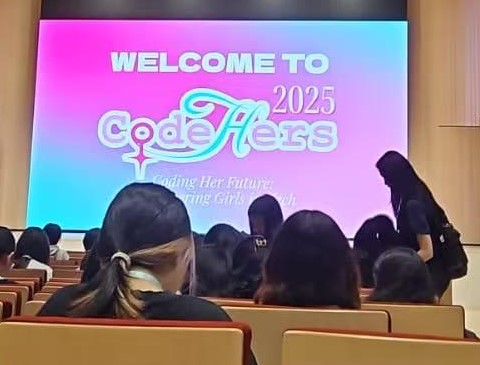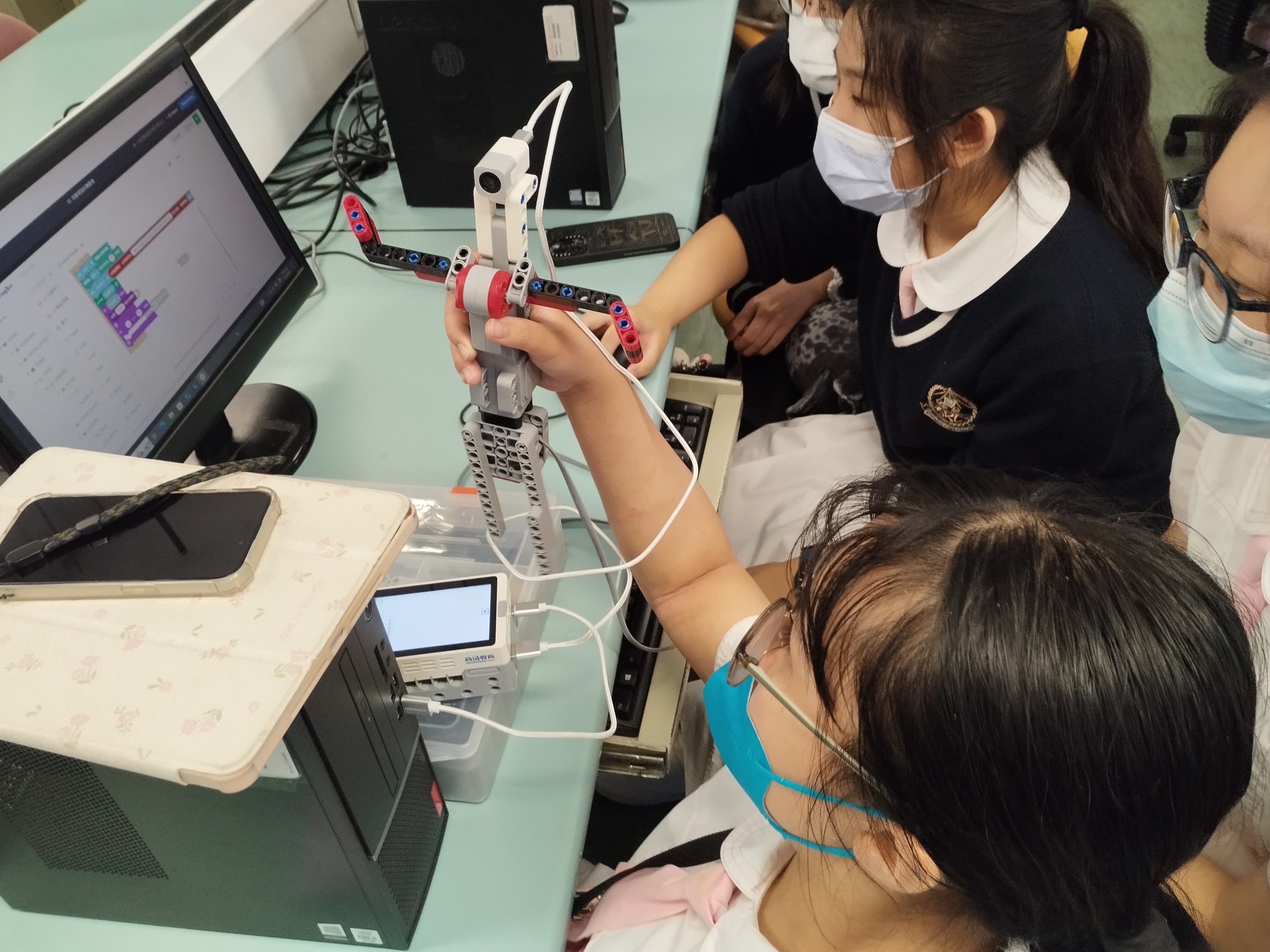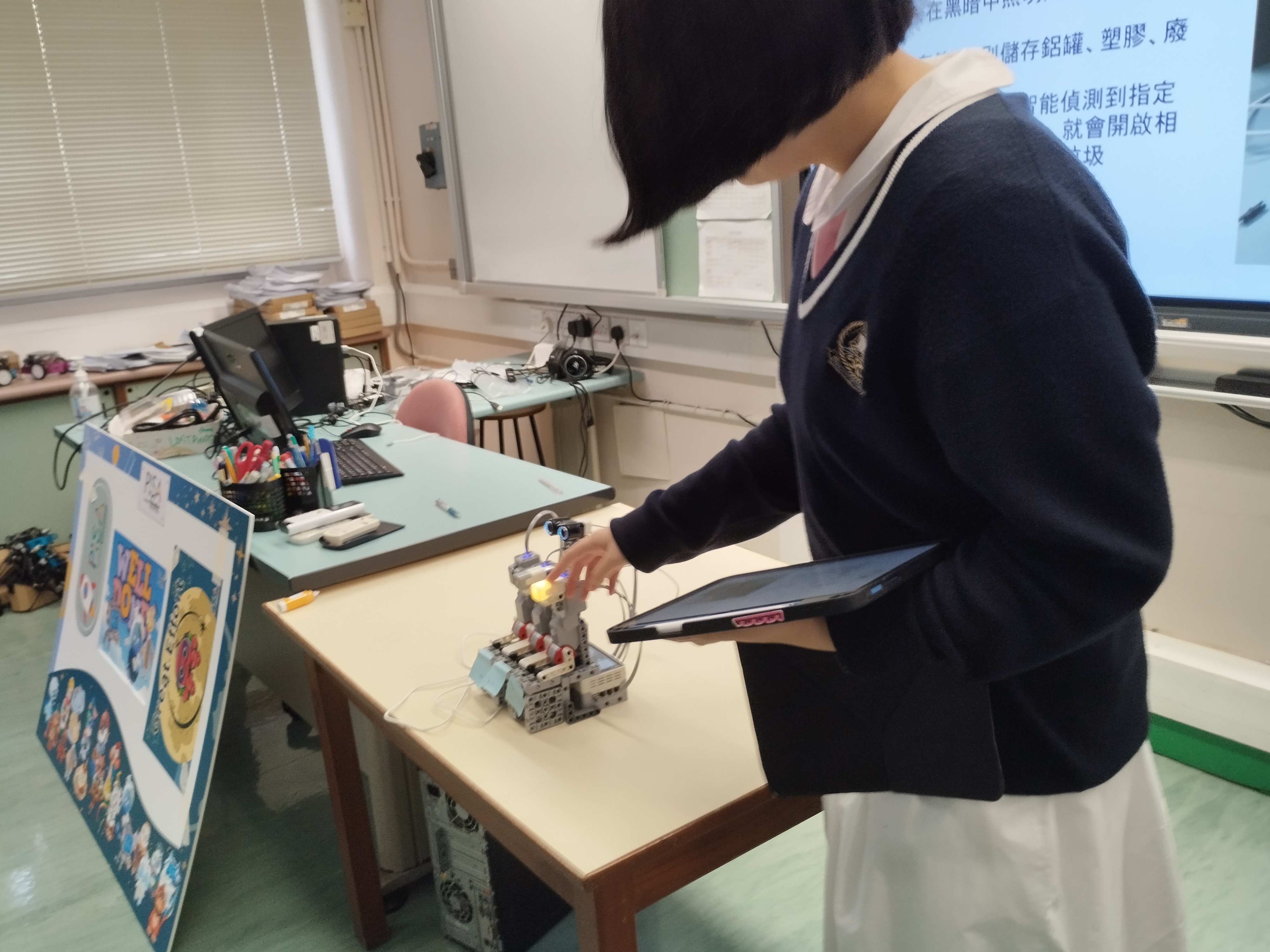Committee members' List
Mr. Ng Wai Shun Wilson
Learning, Teaching and Assessment
In the Committee on STEAM (Science, Technology, Engineering, Arts, and Mathematics) Education, the focus is on fostering interdisciplinary learning and preparing students for careers in STEAM fields. Here is an overview of how learning, teaching, and assessment arranged by our committee:
Learning:
Interdisciplinary Projects: Students engage in projects that integrate concepts from science, technology, engineering, arts, and mathematics to solve real-world problems.
Hands-On Experiments: Encouraging hands-on experiments and activities to promote practical understanding and application of STEAM concepts.
STEAM Clubs and Activities: Offering extracurricular activities, clubs, and competitions related to STEAM fields to stimulate interest and creativity.
STEAM Career Exploration: Providing opportunities for students to explore various careers in STEAM through workshops, field trips, and guest lectures.
Teaching:
Project-Based Learning: Emphasizing project-based learning approaches where students work on STEAM projects collaboratively to develop critical thinking and problem-solving skills.
Cross-Curricular Integration: Integrating STEAM concepts across different subjects to demonstrate their interconnectedness and relevance in various contexts.
STEAM Workshops: Conducting workshops and seminars on topics such as coding, robotics, design thinking, and other STEAM-related subjects.
Assessment:
Performance-Based Assessments: Using performance-based assessments such as presentations, demonstrations, and exhibitions to evaluate students' skills and achievements.
STEAM Competitions: Participating in STEAM competitions where students can demonstrate their knowledge, skills, and creativity in a competitive setting.
By implementing these strategies, the Committee on STEAM Education can provide students with a well-rounded and engaging learning experience that prepares them for further studies and careers in STEAM fields. It fosters creativity, critical thinking, collaboration, and problem-solving skills essential for success in the 21st-century workforce.
Measures to cater for learner diversity
In the Committee on STEAM Education, catering to learner diversity is essential to ensure that all students have equitable access to quality education. Here are our measures to address learner diversity effectively:
1. Differentiated Instruction:
Varied Learning Activities: Offer a mix of learning activities that cater to different learning styles (visual, auditory, kinesthetic).
Flexible Grouping: Group students based on their strengths and needs to provide tailored instruction.
Individualized Learning Plans: Develop personalized learning plans for students with specific learning needs or challenges.
2. Accessible Resources:
Multimodal Resources: Provide learning materials in various formats to accommodate diverse learning preferences.
Technology Integration: Utilize technology tools and resources to support students with different abilities and learning needs.
3. Supportive Classroom Environment:
Positive Reinforcement: Create a positive and inclusive classroom culture where all students feel valued and supported.
Cultural Sensitivity: Respect and celebrate cultural diversity to create an inclusive learning environment for all students.
4. Assessment Strategies:
Varied Assessment Methods: Use a variety of assessment methods to cater to different learning styles and abilities.
Flexible Timing: Provide extended time or alternative assessment formats for students who require accommodations.
Feedback and Support: Offer constructive feedback and additional support to help all students improve their understanding and performance.
5. Professional Development:
Training for Educators: Provide professional development opportunities for teachers to enhance their skills in differentiated instruction and inclusive teaching practices.
Collaborative Planning: Encourage collaboration among teachers to share best practices and strategies for supporting diverse learners effectively.
By implementing these measures, the Committee on STEAM Education can create an inclusive learning environment where all students, regardless of their background or abilities, have the opportunity to thrive and succeed in STEAM fields. This approach can help nurture a diverse range of talents and ensure that each student reaches their full potential.
Gifted Programmes
Here's our structured approach to designing gifted education programs that incorporate Swift programming, game design, artificial intelligence, green mechanics, and exploring recent achievements of your country, China:
1. Swift Programming:
Advanced Swift Courses: Offer advanced courses focusing on Swift programming, iOS app development, and frameworks like SwiftUI and Combine.
App Development Projects: Engage students in creating complex iOS applications, emphasizing user experience and innovative functionalities.
Industry Connections: Foster partnerships with local tech companies for mentorship programs, internships, and exposure to industry practices.

2. Game Design:
Game Development Workshops: Conduct workshops on game design principles, mechanics, storytelling, and game engine utilization.
Game Development Teams: Encourage collaborative projects where students work in teams to design and develop playable games.
3. Artificial Intelligence:
AI Seminars and Workshops: Introduce students to foundational AI concepts, machine learning algorithms, and real-world applications.
AI Projects: Assign projects that involve developing AI models for tasks like image recognition, natural language processing, or predictive analytics.
AI Ethics Discussions: Engage students in discussions about ethical considerations in AI development and deployment.


4. Green Mechanics:
Environmental Engineering Courses: Offer courses on sustainable design, renewable energy systems, green building practices, and environmental impact assessment.
Green Technology Projects: Engage students in hands-on projects focusing on developing eco-friendly solutions for energy efficiency, waste management, and pollution control.
Field Trips and Guest Speakers: Organize visits to green technology facilities, invite experts for guest lectures on environmental sustainability, and participate in eco-awareness campaigns.
5. Recent Achievements of our Country, China:
Technological Innovations: Explore China's recent achievements in technology, such as advancements in AI, quantum computing, and space exploration.
Green Initiatives: Highlight China's efforts in promoting green technology, renewable energy adoption, and sustainable development projects.
Economic Progress: Discuss China's economic growth, innovation ecosystem, and contributions to global trade and technological competitiveness.
Cultural and Historical Significance: Explore China's rich cultural heritage, historical achievements, and contemporary cultural contributions to the world.
By integrating these elements into gifted programs, students can develop a comprehensive understanding of cutting-edge technologies, sustainable practices, and global achievements, while also gaining insights into the recent advancements and initiatives of your country, China.
By implementing these specialized gifted programs, the committee can nurture and challenge students with exceptional abilities and interests in these advanced STEAM fields, providing them with the knowledge, skills, and experiences needed to excel in these cutting-edge disciplines.
Activities inside and outside classrooms and school
HKU CITE 學生獎勵計劃 2024-2025
Girl Go Tech 2024
PRACTIFLY AI 2025大灣區校際數理思維精英挑戰賽 2024
The 5th Biomedical Engineering Innovation Competition “Love.Innovate for Happy Ageing” 2024
數碼解題王 2024
Ai Graphics Generation Competition 2024
“Logistics In Your Eyes” Short Film Competition 2024
"Your Dream Home" Bim Competition 2024-25
"Oasis Of Mindfulness" Stem Mindful Treehouse Design Competition 2024-25
Ai For The Future Project 2024-25
綠色創意科技大賽2025
Talk on "Technology Security under National Security"
國家安全下的科技安全與網絡安全
Smart City Interactive Workshop
知慧城市互動工作坊 (Organised by the Technology Education Department)
Competitions and Awards
HKU CITE 學生獎勵計劃 2024-2025
香港大學教育應用資訊科技發展研究中心舉辦的「HKU CITE學生獎勵計劃2024-2025」,旨在讓學生深入反思自主學習, 以及實踐工程設計及/或科學探究的歷程及成果,同時促進參賽者及計劃學校間的交流學習,並對他們在各方面的發展 (如: 21 世紀能力、團隊協作及價值觀等) 予以表彰。
Lam Sze Ching Kelly received Gold Award (Certificate and Gift)
Lee Cheuk Lam Zita, Sin Wai Yi Valerie,Tandiono Julia, Wu Sum Kiu Charlotte, Yuen Sum Yuet Ella, Chong Yi Laam Alicia and Poon Tsz Ching Sherise received Merit Awards (Certificates) from F.2A
HKIIT Student Spatial World Design Challenge 2025
Organised by 417 Technology Limited
Three students —Nicole Chen from F4C, Alice Liang, and Jasmine Lo from F.4E— actively participated in the competition, designing and creating an outstanding entry. They were awarded "
Silver Award (With Trophy) ". Hereby, we commend their efforts and achievements!
Hong Kong Greenmach Contest 2025
香港機關王競賽 2024/25 主辦
Four students —
Cheung Coey, Chong Yi Laam Alicia, Sin Tsz Kiu Daphne,Poon Tsz Ching Sherise from F.2A — actively participated in the competition, designing and creating an outstanding entry. They were awarded "Merit Award (Creative Production) (With Trophy)". Hereby, we commend their efforts and achievements!
The Architecture, Interior and Landscape Design Competition 2024
2024 「RE-FORM牛棚藝術村」建築、室內及園境設計比賽
The competition was organized by the Building, Civil Engineering and Built Environment Training Board of the Vocational Training Council. The theme of the competition was “RE-FORM Cattle Depot Artist Village”.
Audrey Lau (F5E) got the best interior design award in the Architecture, Interior and Landscape Design Competition 2024.
職業訓練局建築、土木工程及建設環境訓練委員會主辦 2024 「RE-FORM牛棚藝術村」建築、室內及園境設計比賽。
劉柏妍同學(5E) 於是次比賽中獲得最佳室內設計獎。